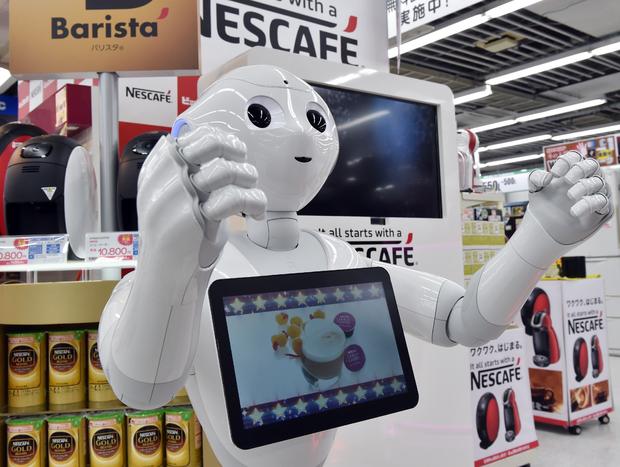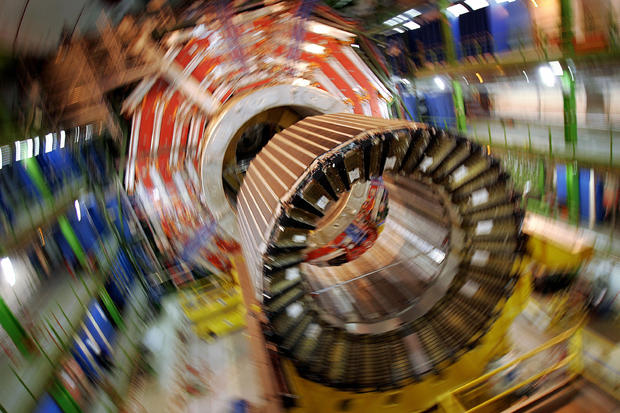The year to come in SciTech: Expert predictions for 2015
From personalized medicine to the edge of the solar system, dark matter to fighting cybercrime, CBS News gives you an insiders' look ahead at some of the breakthroughs we may see in the year ahead in science and technology.
Click through for 2015 SciTech predictions from leaders in their fields.
Space
CBS News space consultant Bill Harwood says to keep an eye on Elon Musk's SpaceX in its attempt to prove that it's possible to reuse a rocket -- launching one, say, to deliver a payload to the International Space Station, then recovering it and using the same rocket for another mission. "If he can in fact recover, refurbish and reuse these stages, that could dramatically reduce the cost to space," says Harwood. "And 2015 is the year when that may in fact become a reality. It's a big if, but it will be a breakthrough if he can do it."
It may seem like a relatively quiet year for NASA, which is looking ahead to future deep space missions, and whose direction will be largely determined by the next administration and a Republican-led Congress that seems lukewarm on the agency's plans to visit an asteroid in the 2020s. In the near term, NASA will focus on space station operations. In March, Scott Kelly, along with cosmonaut Mikhail Kornienko, will embark on a full year on the space station, something no American has ever done before. And in July, the New Horizons probe, launched in 2006, will make the first close-range observations of Pluto.
Meanwhile, the crew aboard the ISS will be busy installing two new docking stations to enable spacecraft from SpaceX and Boeing to deliver astronauts starting in 2017.
It will also be a rebuilding year of sorts for commercial space travel, which saw a major setback in October, when a Virgin Galactic test flight crashed in California, killing one of the two pilots. Virgin will have to do a lot more testing and earn back the confidence of potential space tourists who have already paid -- or hope one day to pay -- $250,000 to go into space.
Click here for the next prediction.
Robotics
Watch out for drones in 2015, says professor Michael Gennert, director of robotics engineering at Worcester Polytechnic Institute. With the FAA allowing the first uses of commercial drones, he expects "a stampede of potential new applications." And a stampede of bad behavior.
"The FFA has been slow to promulgate new drone regulations; consequently, people have been taking liberties with drones, in some cases flouting common-sense safety practices. Don't be surprised to see serious accidents or near-misses this year, with more drones in the hands of unskilled operators."
Gennert also says to keep an eye on Amazon and Google's heavy investments in robotics: "Something big is brewing in commercial robotics, but those who know aren't saying, and those who are saying don't know."
Click here for the next prediction.
Physics
After almost two years in dormancy, the Large Hadron Collider will be turned on again in March and cranked for the first time to 13 trillion electronvolts, nearly full power. "We hope to find new particles even beyond the Higgs boson," aka the "God particle," which was found using the LHC in 2012, says theoretical physicist and CBS News contributor Michio Kaku. "These are called sparticles -- super particles -- which make up, we think, dark matter, which in turn makes up 10 times more matter than ordinary matter."
"It's sort of like the blind leading the blind," he continues. "We don't know at what mass and what energies these particles may be found. But if it's true, it would represent the first new state of matter ever discovered in this century. A new state of matter that we've never seen before. That would force a rewriting of all textbooks."
Click here for the next prediction.
Genomics
Genomics pioneer Craig Venter is confident that early this year he will have created the first synthetic organism with a completely synthetic set of genes. "In 2015 we will be announcing the first genome actually designed in the computer resulting in living cells," says Venter, who mapped the human genome in 2001 and created the world's first synthetic cell in 2010. The novel life form will resemble bacteria and have the smallest genome of a living, self-replicating cell. It will come to life this year, and it will live forever.
Venter also believes that this will be a breakthrough year for personalized medicine. While now, scientists can sequence thousands of genomes in a year, Venter's new company, Human Longevity, Inc., is aiming to scale to 100,000 this year. "It's a big change in technology," he says. "2015 will be the first full year of using this new technology and I think it will finally begin to help realize the promise of genomics to impact medicine," opening the way for specifically tailored treatments for patients with diseases such as cancer.
Click here for the next prediction.
Environment
The year 2014 was one of the hottest years on record -- and 2015 is likely to follow suit, with more extreme weather events like flooding and droughts. "The computer simulations all indicate more hundred-year this, hundred-year that taking place," says Kaku.
But could there be hope in the air? The United Nations' talks in Paris next December could be the stage for a global climate agreement requiring all nations to do their parts to reduce greenhouse gas emissions beginning in 2020.
Click here for the next prediction.
Cybersecurity
This is the year that cybersecurity will get the corner office, says Michael Daly, chief technology officer for the cyber division of defense firm Raytheon. With cyber criminals now threatening companies' reputations, not just their data, there will be a call to restructure the corporate suite to deal with the threat at a higher level.
"As technology steps beyond the borders of IT, and cyber considerations become a growing centerpiece of the business strategy of major corporations, chief information security officers (CISOs) and chief information officers (CIOs) will become as critical to their organizations as CFOs and COOs."
Daly also predicts that as cyber attacks continue to come from foreign soil, "there will be a greater number of high-profile hacker takedowns courtesy of the American government in 2015."






